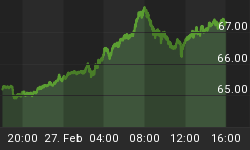Can white elephants come in green?
President Barack Obama flew to Holland, Mich., on Thursday to attend groundbreaking ceremonies for a new lithium-ion battery plant, which the White House advertised as an example of federal stimulus grants at work and a gateway to a clean-energy future.
Great stuff -- if you don't look too hard.
Indeed, the Holland plant, effusively hailed by Michigan Gov. Jennifer Granholm as creating 300 jobs, and 62,000 "green" jobs down the road, will produce batteries in America.
But Compact Power Inc., which received $151 million from a federal stimulus program to open the $303 million plant, isn't American and neither is its technology: It's a subsidiary of the giant South Korean conglomerate LG Chem, and its technology is Asian.
Also that age-old bugaboo for electric cars -- range and battery life -- is still a work in progress. General Motors says its Chevy Volt will go up to 40 miles on a single charge and will have a range-extending, gasoline-assist feature. Nissan's fully electric car, the Leaf, will have a 100-mile range. Ditto Ford's electric Focus. Much depends on driving conditions.
Lithium-ion batteries are way ahead of traditional lead-acid batteries in power and weight, but they aren't perfect. As yet, the best battery is far from being a competitor for a tank of gasoline.
There's a back story here. The most obvious narrative is the need to create jobs in Michigan, and the hope is that electric vehicles will bolster car production there.
More obscure is the administration's belief that a brave, new clean-energy America can produce jobs and reduce the output of greenhouse gases. In Obamaland, windmills will turn silently through the night, while millions of fully electric cars get their batteries topped up in driveways and garages.
A green and pleasant land is just a few million batteries away and, by Jove, the Department of Energy is on the job. It has $2.4 million to spend on electric car infrastructure. The department is helping to bring on nine battery plants, including the one in Holland. It's also promoting charging stations.
Some small facts: These batteries are still so expensive (about $16,000 apiece) that any fully electric car, or near so, requires subsidies down the line to get the price down to where ordinary people will buy them in quantity. The only fully electric vehicle on the market today, the Tesla, is a sports car that costs over $100,000 and is aimed at the well-heeled greens of Hollywood.
While official retail prices for the Ford, Nissan and GM models haven't been announced, estimates are in the range of $30,000 to $35,000. Federal tax credits are likely to trim several thousand dollars for many buyers.
Batteries have stood in the way of electric cars for more than a century. In the early days of motoring, electric cars covered short distances and held promise. But while internal combustion engines revved ahead, batteries languished.
But the dream of an electric car never died, though the batteries frequently did. In the 1970s, the U.S. government spent lavishly on battery research, including lithium and aluminum air batteries. There are dozens of ways to make batteries, but all have their disadvantages: weight, disposability, life, rate of discharge and market indifference.
If you want everything you get today on a car -- electric windows, air conditioning, electric seats, multiple lights, highly variable loads and easy refueling and, maybe, towing capacity -- you need a hell of a battery
We have, so to speak, been shocked by presidential energy enthusiasm before. Jimmy Carter believed in liquids from coal and launched the ill-fated Synthetic Fuels Corp., and George W. Bush went hog wild over ethanol -- and those expectations are being trimmed daily.
I'll buy a hybrid and wait, if it's OK with Obama.
By Llewellyn King for OilPrice.com who offer detailed analysis on Oil, alternative Energy, Commodities, Finance and Geopolitics. They also provide free Geopolitical intelligence to help investors gain a greater understanding of world events and the impact they have on certain regions and sectors. Visit: http://www.oilprice.com















